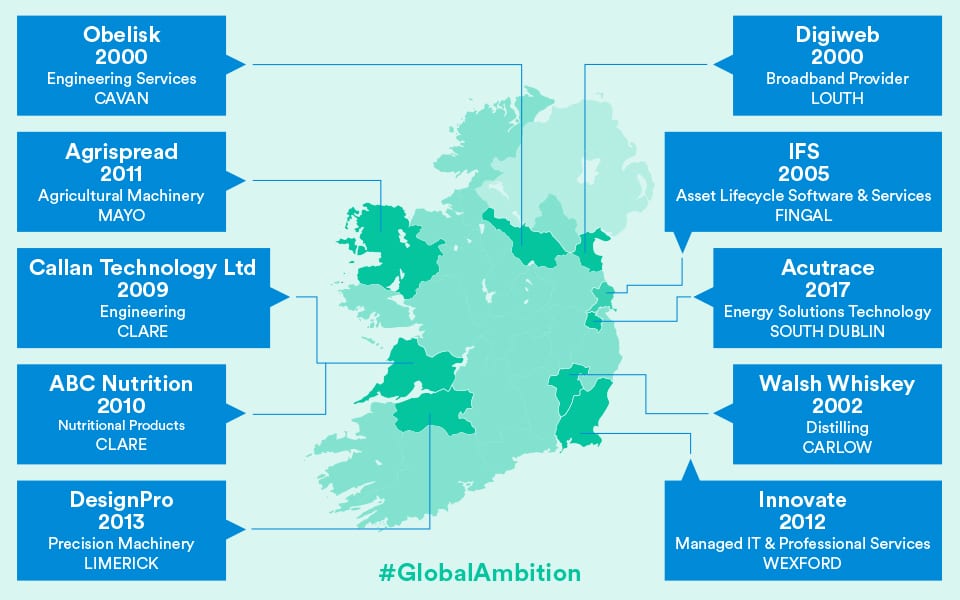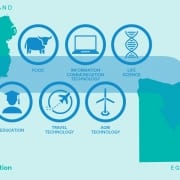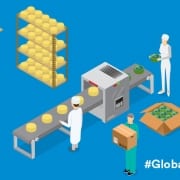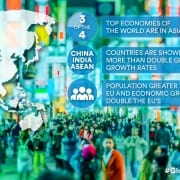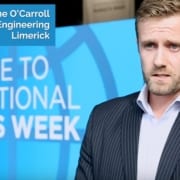How investing in growth paid off for SF Engineering
Visit almost any leading food company around the world and you are quite likely to find production line technology supplied by Irish firm SF Engineering.
Since its establishment in 1983, SF Engineering has been responsible for more than €250 million worth of food processing projects in 63 countries across Europe, North and South America, Russia, the Middle East, and Australia.
Central to the company’s success during that time has been its commitment to innovation and unwavering customer focus.
“We started off in the fish industry,” says CEO and founder, Seamus Farrell. “After that, we moved into the red meat sector and the broader food industry. This wasn’t part of a grand plan. It sort of happened accidently.”
It was a natural evolution, however, given the impact the company had already had on the fish sector. “What we did for the fish industry was futuristic,” he says. “At the time, it cost around €25 per tonne to process fish. We reduced that price to €4 per tonne by automating the process. That was our first big kill and set us up for future growth. After that, we moved into the Scottish and Scandinavian fish sectors – that was quite a natural move for us. We have never been export shy.”
Today, SF Engineering designs, manufactures and installs high-quality food production lines. Specific product lines include conveyors, packing solutions, platforms, weighing equipment, fat analysis, quality control, hygiene equipment, lifting and tipping equipment.
“Our process design expertise enables us to deliver highly efficient food production lines that reduce costs, increase capacity and require less maintenance”, says Farrell. “Our food technology experience covers a range of sectors, including meat, poultry, fish, bakery, dairy, fruit and veg, ready meals and pet food. We are experts in the precision engineering of complex engineering systems for the food sector and we provide a trustworthy support service to our clients who operate around the clock throughout the year.”
Expansion into international markets began in earnest in the late 1990s and this saw the company form a number of key strategic alliances with global partners. “We have formed great partnerships with companies, firstly the main one being Ishida, then following on from that CEIA, Marelec and Eagle”, says Farrell. “They have been very important to us. They allow us to combine our complementary strengths in different areas to supply turnkey solutions to the global food industry.”
These partnerships have been an important source of new business referrals, but the company is active on international markets winning new orders. “You have to keep driving on,” says Farrell. “We have consistently invested in R&D over the years, with support from Enterprise Ireland and others. Back in 2009, when Irish businesses were severely challenged by the recession, we made a decision to invest in growth.”
That decision saw the acquisition of Opal FPS in St Ives, Cambridgeshire. “That helped us to grow our sales in the UK. It has also Brexit-proofed our business.”
Another key decision around that time was the opening of a new base in Prague, where the company’s Global Installation Team is based. The relationship with the Czech Republic dates back to the late 1990s.
“In the late 1990s and early 2000s we found that we were losing people to the building boom,” says Farrell. “That led to us employing a lot of people from the Czech Republic. We found them to be very good stainless steel fabricators. Without those guys we wouldn’t have been able to expand internationally as quickly as we did. The Global Installation Team is in transit, with all the team travelling around the world from project to project.”
Farrell is grateful to Enterprise Ireland and the other bodies which supported the company in its growth and development over the years. “They believed in the company and supported us, and that was very important.”
He believes export success begets further export success. “Having supplied all these blue chip companies around the world gives us the confidence to go out and win more business,” he says.
“We are also very lucky to come from a country with a very strong food industry, which has travelled well globally and has established a reputation for high quality. Our core values are to be as professional and competitive as possible. We are never going to be the cheapest, but we will add the most value and deliver the best and fastest return on investment to our customers. We are large enough to compete around the world but small enough to be flexible when it comes to delivering solutions for customers. We understand that retailers and consumers want more affordable, safer food on supermarket shelves, and they want very good quality. We provide the solutions that enable our customers to meet that demand.”
These core values have seen SF Engineering expand to employ 110 people in Ireland, the UK and Prague, with business growing strongly year on year. “We will have sales of €20 million this year,” Farrell concludes.
Learn how Enterprise Ireland enables companies to access R&D funding with our innovation supports.



